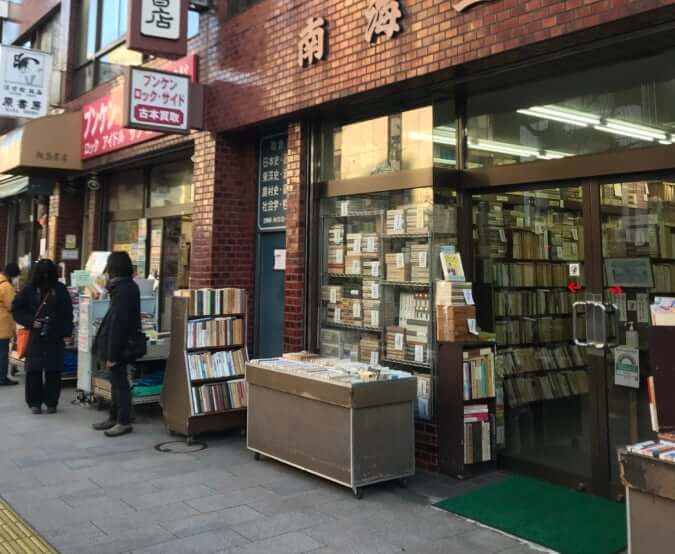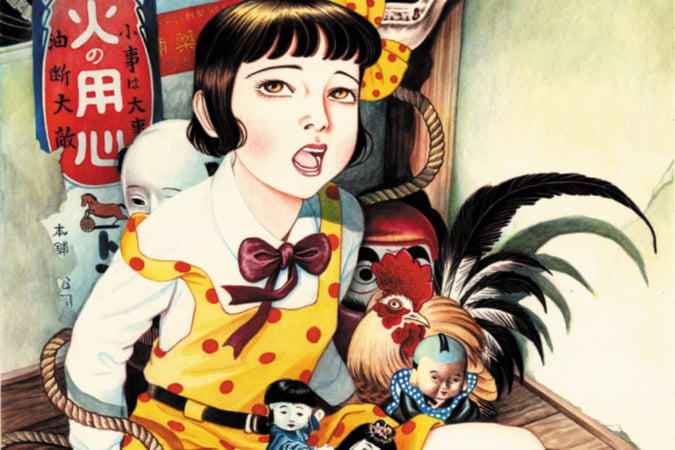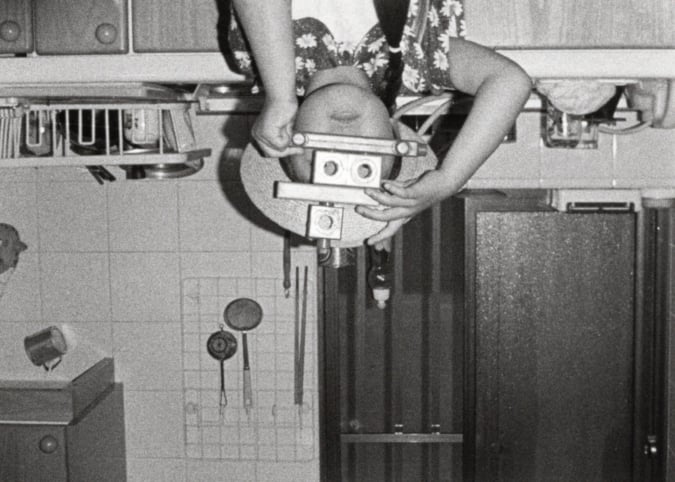‘Pachinko’ – Japanese Pinball Machines
Japan’s unique, extremely profitable pinball machines reveal the secret desires and stakes behind pop psychedelia.
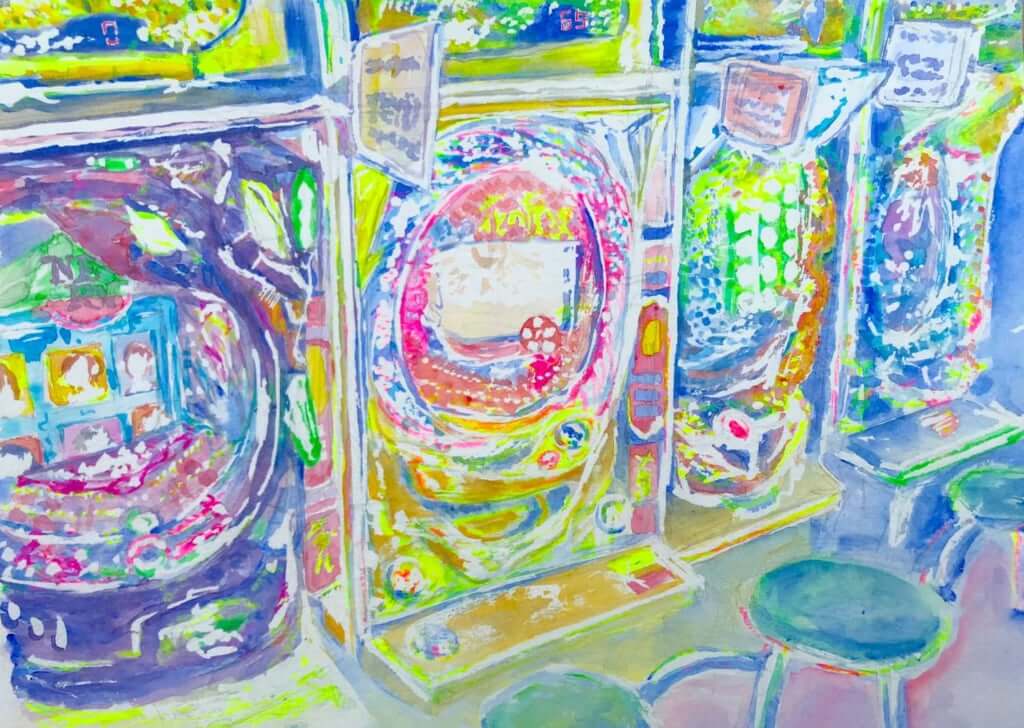
Artwork by Miranda Remington
Glowing at the heart of society but often left undiscussed in Japan, where gambling for cash is illegal, pachinko pinball arcades generate 30 times more revenue than Las Vegas each year. Pachinko parlours are vast rows of flashing slot machines, where gamblers are transfixed over the course of long hours. Amidst a blast of mechanical noise, each machine is a buzzing altar decorated kaleidoscopically with familiar anime characters. At a glance they dazzle, but they also serve as a metaphor for a reality governed by technological fantasy and brutal competition.
Enter the Void
In pachinko, the player uses a single lever to direct steel balls that ricochet between pins towards a scoring hole. The extent to which the game’s odds and trajectories are in the player’s hands is ambiguous. What is more, instead of directly receiving cash at the parlour, players use the balls to win ‘special prize tokens’, exchangeable at separate vendors without technically violating the law.
The first machines were made in the 1920s as children’s toys, inspired by earlier European equivalents. They were placed in candy shops using sweets as prizes, and acquired the name ‘Pachi Pachi’ from the sounds that they made. Re-emerging as a form of adult recreation after the war, by the 1980s they were entirely electric, and their LCD screens and sound displays increasingly incorporated elements of a video-game society. Amongst themes of pop-cultural material—the two most popular machines of all time being decorated with images from classic manga Fist of the North Star and anime Neon Genesis Evangelion—the majority of franchises are owned by Sega Sammy Studios, the company behind Sonic the Hedgehog.
The Game of Life
Existing in obscurity, pachinko has generated its sizeable profit through legal loopholes often used for corrupt purposes, involving yakuza-related activity. But the hidden lifestyles it constitutes include the ambivalent status of Japan’s ethnic minorities.
Themes of pinball and fate are most powerfully tied up in Pachinko (2017), Korean-American author Min Jin Lee’s award-winning novel of a Korean family who find work in Japan’s arcades. Pachinko’s multi-generational epic is based on real hardships faced by ethnic Koreans in Japan, the country’s largest minority group since World War II, who still struggle to find traditional employment. Nearly half of Japan’s leisure time is spent in pachinko parlours, while little is spoken of this population who have resided in the country over generations, and who, after pioneering the industry, now run an estimated 80 percent of its parlours.
An omnipresent emblem for Japan’s charmingly disorientating landscape, pachinko‘s promise of escape has generated a significant economic outcome. Yet as debates on the legality of gambling in Japan intensify, punters may speculate on the fate of the pachinko machine, whatever new constellations may arise from a single touch.
Pachinko is widely enjoyed everywhere across Japan today. Min Jin Lee’s novel Pachinko, winner of the US National Book Award for Fiction in 2017, has been translated in 22 languages and is available online.

Artwork by Miranda Remington.
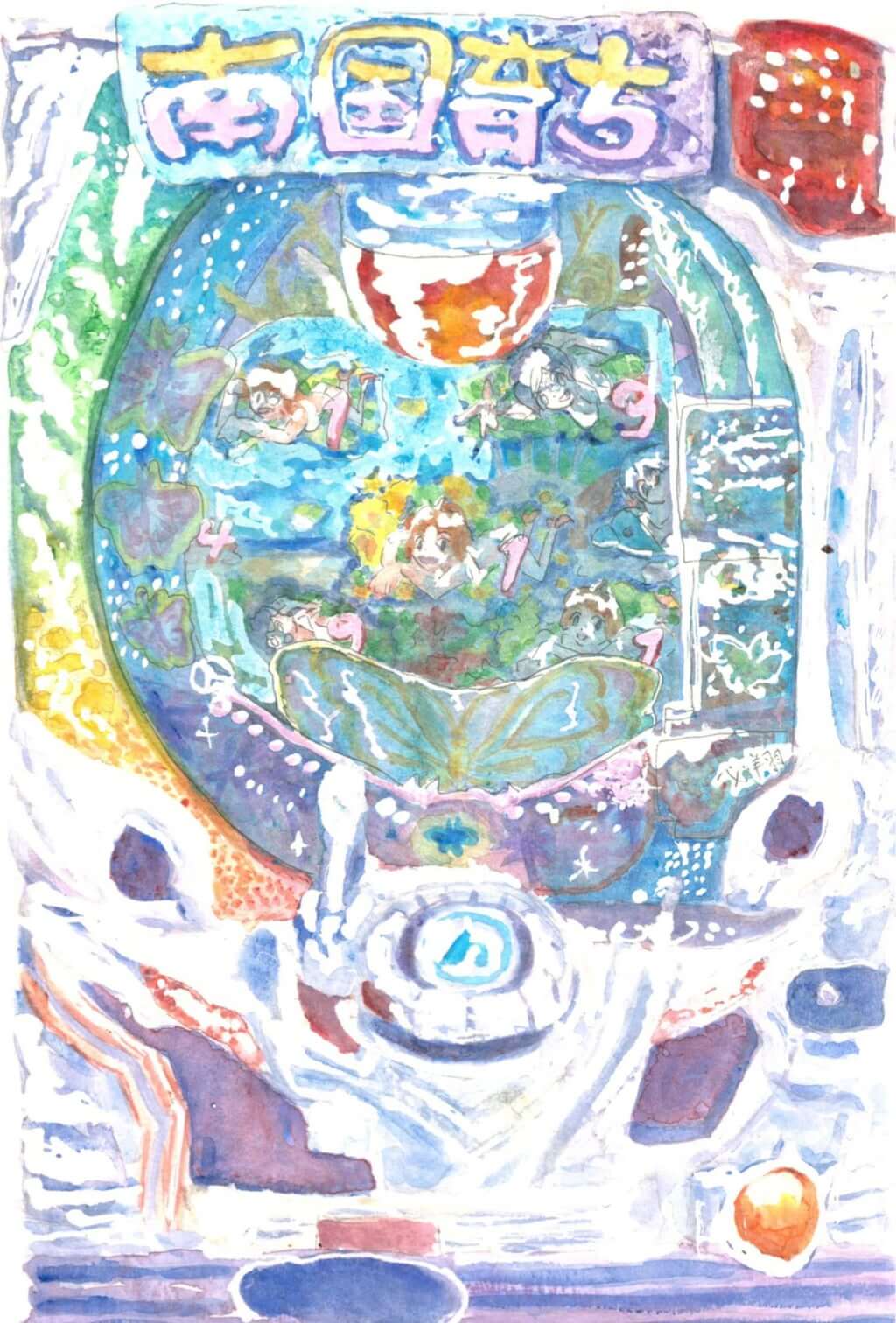
Artwork by Miranda Remington.
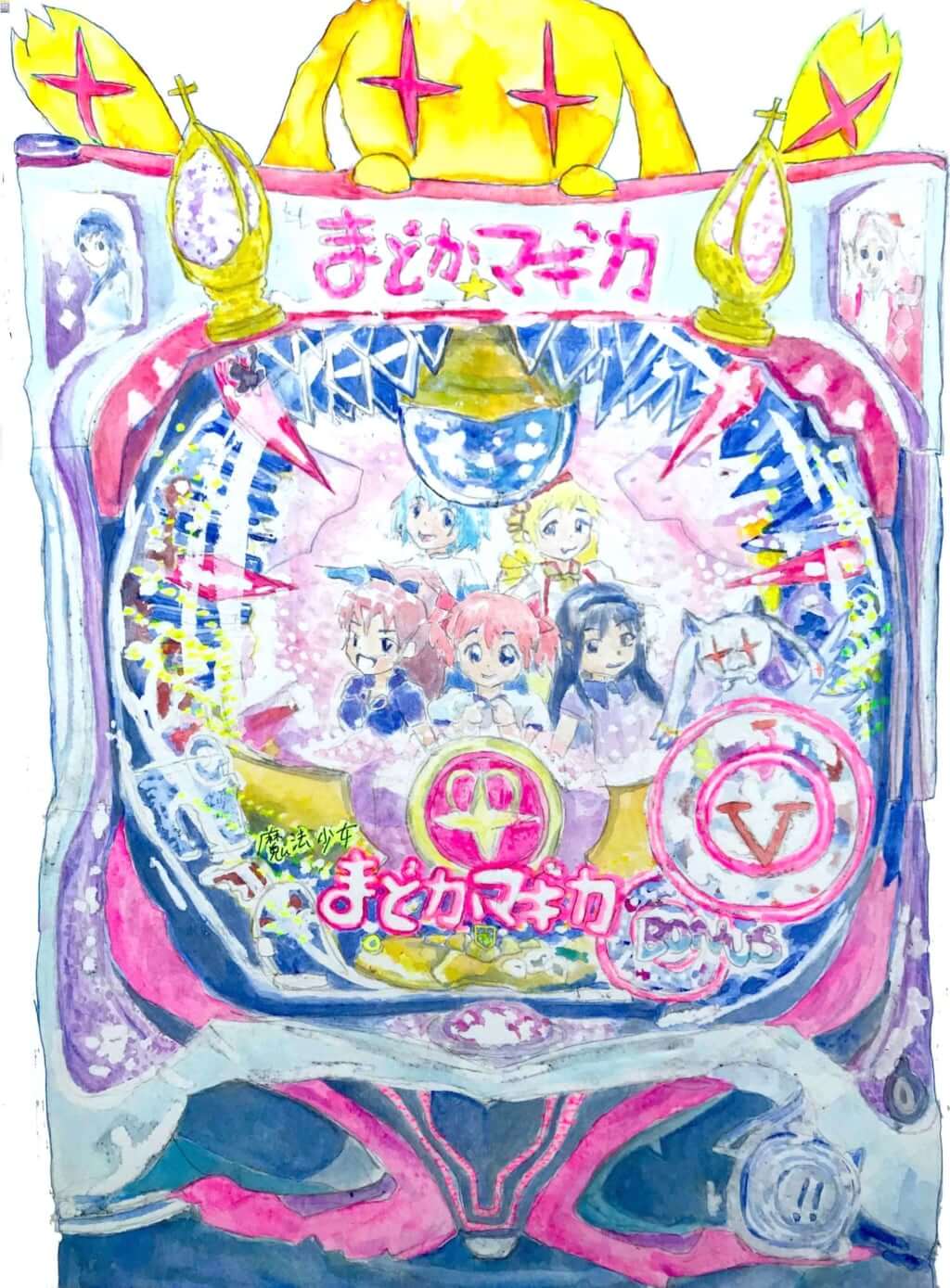
Artwork by Miranda Remington
TRENDING
-
Jinbocho, Tokyo’s Book District
This neighbourhood in Chiyoda-ku has become a popular centre for second-hand book stores, publishing houses and antique curiosities.

-
‘Shojo Tsubaki’, A Freakshow
Underground manga artist Suehiro Maruo’s infamous masterpiece canonised a historical fascination towards the erotic-grotesque genre.

-
The Tattoos that Marked the Criminals of the Edo Period
Traditional tattoos were strong signifiers; murderers had head tattoos, while theft might result in an arm tattoo.

-
Haruomi Hosono’s Music for 'Shoplifters', by Hirokazu Kore-eda
The director reflects on the ‘mature’ sound of Haruomi Hosono’s score and how it shaped his Palme d’Or-winning film.

-
Issei Suda’s ‘Family Diary’, A Distant Look at Daily Life
For two years, he photographed his family using a Minox, a tiny camera notably employed by intelligence agencies.

